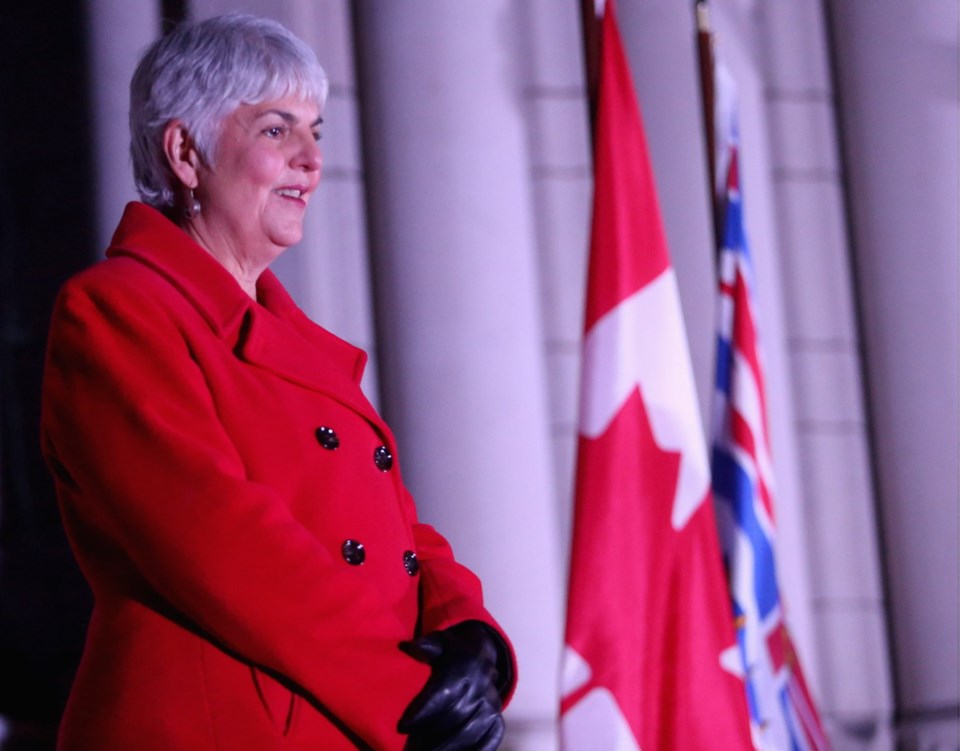VANCOUVER — Expect to pay more for gas and CPP premiums and maybe property taxes, but less for EI premiums in 2019.
And overall, combined income and payroll taxes are going up next year for all British Columbians earning between $30,000 and $200,000 a year, single or married with kids, except for one low-income category, according to a report by the Canadian Taxpayers Federation.
And a new employer health tax came into affect on Jan. 1 to replace MSP premiums, so British Columbians who currently pay for their own Medicare premiums will no longer have to.
Those premiums were cut in half a year ago, but they’re still payable until Jan. 1, 2020. That means employers with payrolls of more than $500,000 will pay for the new Employer Health Tax (EHT) and MSP premiums throughout 2019.
“That’s going to be a huge tax bill for a lot of British Columbian [businesses],” said Kris Sims, the B.C. director of the federation. “That’s where the double-dip factor comes into play.
“What cheeses us off is the NDP campaigned on getting rid of the MSP but they didn’t say they were just going to replace it with another tax. We fully expect them to do a better job on the money they take in.”
The new EHT taxes employers with payrolls of $1.5 million at 1.95 per cent, and a pro-rated percentage of 2.925 per cent for those with payrolls between $500,000 and $1.5 million.
Companies with $500,000-and-under payrolls are exempt.
Sims says the EHT will be borne by large companies, giving them less money to hire new staff or give raises, hurting the working class.
Sims also said the $500,000 exemption cutoff for businesses to pay the EHT will be a disincentive for those small businesses to grow.
And municipal governments will pass the cost on to ratepayers.
Kamloops city hall will pay $1.2 million more for the EHT, $500,000 of that will come from its reserves and the rest will come from higher taxes, according to the city’s corporate services director, Kathy Humphrey.
“In 2020, we estimate that our EHT costs will be about $200,000 higher [a year] than we were paying with full MSP costs,” she said in an email.
Finance Minister Carole James wasn’t available to comment, but her office sent an emailed statement that said implementing the EHT and ending MSP premiums will cut taxes by $800 million a year, “one of the biggest middle-class tax cuts in B.C. history.”
The finance ministry wouldn’t provide data on how many British Columbians pay their own premiums of up to $37.50 a month for singles and $75 a month for families (low-income families earning $26,000 and less are exempt), but said cutting MSP premiums will save $900 a year for singles and $1,800 for families.
The ministry claims the MSP was unfair because it was “disproportionately paid by working and middle-class people.”
The ministry also claims that some municipalities will pay less under EHT. But for those who will pay more and have to raise taxes, it will be “only a few dollars per household per month.”
Other increases include B.C.’s per-tonne carbon tax jumping to $40 from $35 on April 1, and the per-litre carbon tax rising to 8.89 cents from 7.78 cents.
Also on April 1, a TransLink tax of 1.5 cents a litre of gas (up to 18.5 cents a litre) also kicks in, said Sims.
The federation also reported CPP premiums will rise in 2019 by 0.15 per cent, or $98 a year for a worker making $60,000 a year. CPP is scheduled to rise over five years to a total of $550 a year for a $60,000 a year worker, who will pay $380 extra after offsetting tax cuts.
But EI premiums are dropping slightly to 1.62 per cent from 1.66 per cent, or about $17 a year for a typical worker (plus a drop of $24 a year for employers).
And the federal small business tax rate is dropping to nine per cent from 10 per cent.
For anyone with any money left over at the end of their paycheque, Ottawa has raised the amount of savings they can put away tax free by upping the limit for the tax-free savings account, or TFSA, to $6,000 from $5,500 a year.



